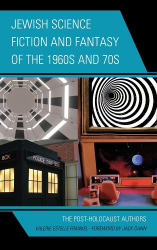In 1968, David Biale left Harvard after his freshman year, attracted by the intellectual ferment, activism, and counterculture at the University of California, Berkeley. Ever since, his scholarly interests have focused on rebels and heretics who challenged conventional Jewish wisdom, a field in which he has become an acknowledged authority. Each of the fifteen essays in this captivating collection touches on one or more of those individuals.
Dissenters have always been with us. When Moses led the Jewish people to the Promised Land, Korach led a rebellion against him. But why? Was it an urge to violate boundaries? A populist claim that “all of Israel are holy”? Or was it just the prerogative of a wealthy man? These are the kinds of questions that animate Biale’s research.
No one knows who compiled the outrageous text Toldot Yeshu, a medieval collection of disparaging legends about Jesus. Martin Luther assumed it was written by Jews in order to mock Christianity. David Biale suggests it might actually have been a satirical folktale rather than a polemic.
Biale applies the word “radical” to the methods of the poet, philosopher, and Bible commentator Abraham ibn Ezra (1093−1167). Anticipating modern biblical critics, ibn Ezra viewed some texts through a human lens, others from a universal perspective, and then he synthesized the two. A very different figure, the Hasidic Rabbi Nachman of Bratslav (1772−1810), created a new dimension in prayer when he embraced praying in sorrow, as well as in the usual Hasidic mode of praise and joy.
Several counterhistories — Biale’s term for heretical or underground narratives — arose in early twentieth-century Germany. Gershom Scholem treated mysticism as a subject for serious study. Hans Jonas argued that existentialism was prefigured by Jewish Gnosticism. Leo Strauss rejected the authority of revelation in favor of a process of uncovering what has been concealed.
One highlight of this book is a transcript of David Biale’s 1980 interview with Scholem, which recalls the events of the philosopher’s six decades in Israel. Another is his chapter dealing with the moral complexities of the Nuremberg trials, in which Hannah Arendt asks troubling questions: On what grounds was genocide held to be a crime? By what authority was the Nuremberg tribunal empowered to pass a death sentence?
In a lengthy discussion of the false messiah Shabbtai Zvi, a native of Smyrna/Izmir, Biale unexpectedly argues that orientalism played a part in Shabbtai’s reception in the West. That’s a difficult argument to make. Edward Said, who coined the term orientalism, saw it as a specifically colonialist construction of the exotic. But the Ottomans were conquerors, not colonies, and Sephardic Jews were often seen in the West as models. Above all, Shabbtai inspired European Jews who desperately hoped for a messiah following the Jewish massacres of 1648. Biale’s invocation of the idea of orientalism seems tangential at best.
Intellectually exciting and a pleasure to read, the essays in this collection are a fine introduction to many important thinkers in the Jewish tradition.
Bob Goldfarb is President Emeritus of Jewish Creativity International.





